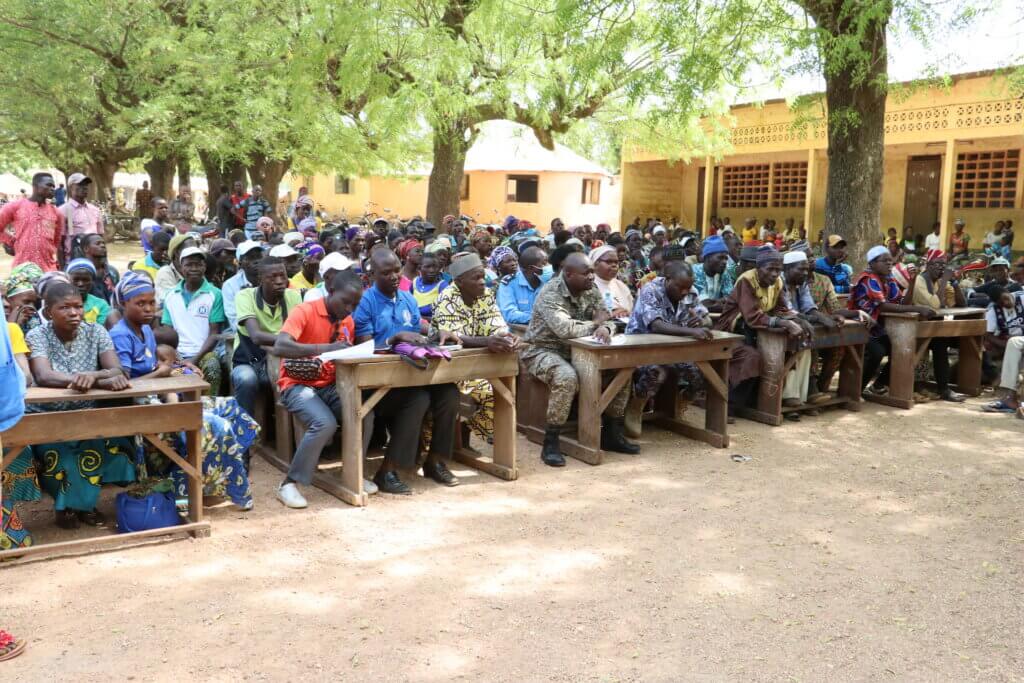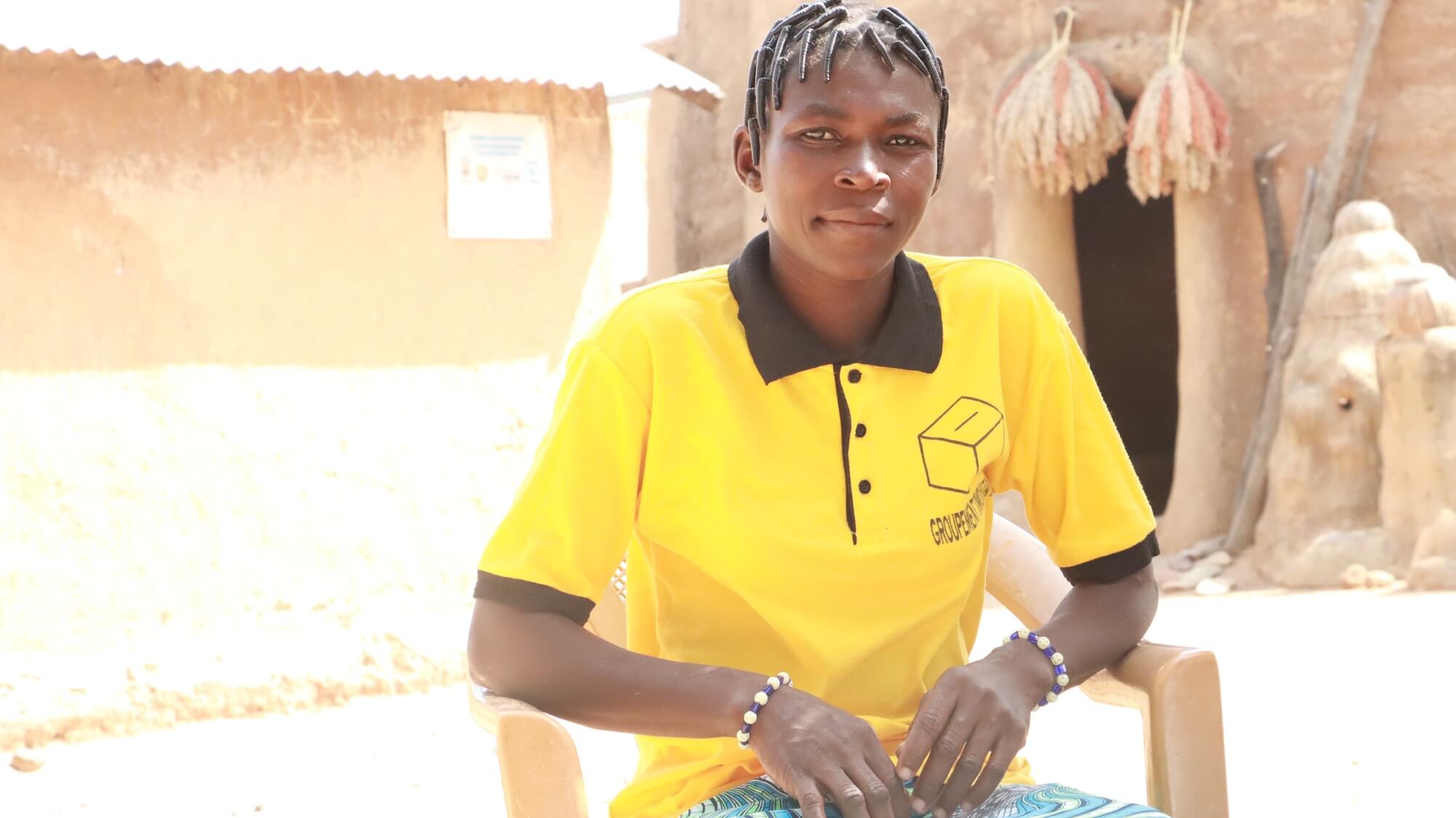In the vibrant Nadoba community within the Kéran district, a typical Wednesday morning begins with the community gathering under the brand-new “apatam,” freshly renovated together with the rest of the facility. These gatherings, supported by Integrate Health, have become a hallmark for community engagement, where health center staff and Community Health Workers share results, exchange ideas, and collect feedback to guide our Program team. They are critical to make sure that what we do resonates with the community and that their concerns are addressed. However, a recent particular meeting stood out, leaving a lasting impression on everyone present.
As the Nadoba health center staff and Community Health Workers began presenting data showcasing months of tireless efforts, a woman in her thirties approached the crowd with confidence. This is the story of Téné Thoma, an advocate, mother, and wife of a UNICEF-supported Community Health Worker—an extraordinary woman whose journey and power are fueled by the deep belief that accurate information can save lives.
A powerful statement
As the presentation unfolded, detailing successes and challenges, Téné took the floor to share her experience in raising awareness among women in her community about the importance of following treatment regimens and correct dosages. She explained how she addresses the skepticism towards free care and free medicine. Using the community meeting as a platform to reach many, Téné, once again, debunked the myths that free medicines are of poor quality or intentionally harmful, explaining that misconceptions often stem from instances of side effects due to incorrect dosages or self-medication.
Téné’s dedication to educating other women, leveraging her position and charisma as the wife of a Community Health Worker, has made her a force for change. She tirelessly advocates for the importance of respecting medical advice, dispelling rumors at meetings, market days, or any gathering of women. “I asked them questions about the medicine they give to their children. Do you know what it treats? Are you aware of the possible side effects if you don’t follow correct dosage? Through these questions, I spark a conversation where I explain how I administer medicine to my own daughter. This is how I spread my message and change mindsets” she explains. On this day, her message resonated deeply, touching the hearts of men, women, community leaders, and staff alike. “Integrate Health helped to reduce the mortality rate throughout Nadoba,” she told us later. “Thanks to the active and constant presence of the Community Health Workers, some of us and our husbands no longer have to turn to plants to treat our children. Of course, there are still some having a hard time hearing this, but as I often like to say, it’s like trying a new form of food, people don’t like it until they actually try.”
Dispelling myths, mistrust and misconceptions: Legacies of a painful colonial past
In her speech, Téné tackled an issue that organizations like Integrate Health often confront: the deep-seated skepticism and circulating rumors within her community. These are not mere unfounded rumors, but are intricately linked to the remnants of a harsh colonial legacy. This skepticism towards initiatives such as ours is deeply rooted in historical contexts of post-colonialism, reflecting complex power imbalances that have persisted over time. It’s essential to recognize that the hesitancy and doubts harbored by the community stem from centuries of colonial domination, which have inflicted profound and enduring scars. Admittedly, the aid sector has also been criticized for being a modern continuation of colonial mechanisms, further igniting such perceptions.
Acknowledging these rumors as grounded in historical truths is crucial. They emerge from a long history of exploitation, racism, and gross human rights violations. Disregarding these perceptions would not only be dismissive but also deeply insensitive to those who have endured and continue to bear the brunt of racism and colonialism’s lingering effects. In navigating these complex and sensitive issues of trust, the genuine role of respected and vocal advocates like Téné is indispensable.
Empowering communities and amplifying impact: What community engagement means to us
Integrate Health places communities at the heart of its mission, recognizing that the effectiveness of the Integrated Primary Care Program relies on active community engagement. Community meetings, like the one where Téné spoke, serve as critical bridges connecting health workers with the communities they aim to serve. These gatherings are pivotal for sharing program results, addressing concerns, and incorporating community feedback, ensuring that health initiatives are culturally resonant and responsive. They are the foundation for treating the community not as beneficiaries, but as partners.

Téné’s story and advocacy exemplify the transformative power of community-led efforts in dispelling myths, building trust, and empowering communities towards better health outcomes. Her role highlights the essential need for respected community allies in amplifying impact and fostering sustainable health interventions.

